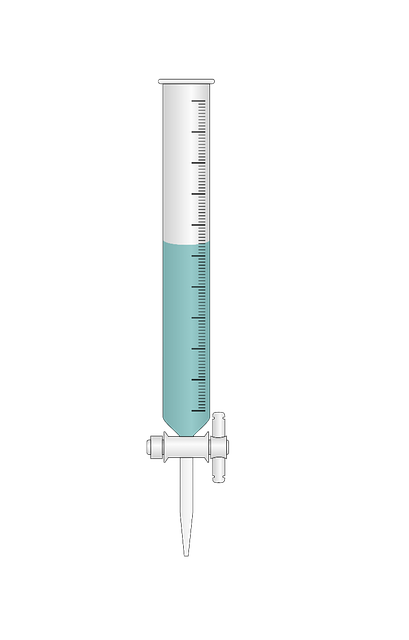Freshmen should strategically prepare for exams by understanding course requirements, using effective note-taking methods and past assignments as guides, creating structured study plans, utilizing textbooks and visual aids, practicing with previous exam papers, adopting consistent habits, and prioritizing hydration. For personalized guidance, visit breakstrategies.com and utilize available resources.
Freshmen, get ready to ace your exams! This guide offers essential tips for optimal exam preparation. Firstly, understand your course requirements thoroughly by reviewing lecture notes and textbooks. Create a structured study schedule and stick to it. Break down complex topics into digestible chunks. Practice with past exam papers and sample questions to gain confidence. Foster effective study habits by taking regular breaks and staying hydrated. Implement these strategies for a successful academic journey.
- Understand Your Course Requirements Thoroughly
- Create a Study Schedule and Stick to It
- Utilize Textbooks and Lecture Notes Effectively
- Break Down Complex Topics into Manageable Chunks
- Practice with Past Exam Papers and Sample Questions
- Foster Effective Study Habits: Take Breaks, Stay Hydrated
Understand Your Course Requirements Thoroughly

Before diving into your exam preparation, it’s crucial to understand your course requirements thoroughly. This means familiarizing yourself with the topics covered, the weightage of each section in the final assessment, and any specific formatting or submission guidelines provided by your instructor. Knowing these details can help you allocate your study time effectively and focus on areas that demand more attention.
Effective note-taking methods are an essential tool for mastering course material. Implement strategies like summarizing key concepts, using your own words to explain complex ideas, and integrating visual aids or diagrams whenever helpful. Regularly review your notes, identify knowledge gaps, and fill them by revisiting lecture materials or seeking clarification from peers or instructors. Learning from mistakes is a powerful strategy; analyze past assignments or practice questions to understand common pitfalls and improve your performance during exams. Additionally, consider the effectiveness of flashcards as a quick revision tool for memorizing key terms or formulas. Visit us at answer key analysis anytime to further enhance your understanding and prepare comprehensively for your exams.
Create a Study Schedule and Stick to It

Freshmen often feel overwhelmed when it comes to exam preparation, but establishing a structured study routine is key to success. Begin by creating a comprehensive study schedule that aligns with your university’s academic calendar. Allocate specific time slots for each subject, considering the difficulty level and your personal learning pace. Break down complex topics into manageable chunks and set realistic goals for each study session. This strategy ensures you cover all material efficiently while avoiding last-minute cramming.
Sticking to your schedule is vital. Make a commitment to yourself and treat studying as a non-negotiable part of your daily routine. Eliminate distractions by designating a quiet, well-lit study space. Utilize tools like planners or digital calendars to track your progress and stay accountable. Regularly reviewing your notes and practicing identifying critical information will enhance retention. Additionally, don’t underestimate the value of analyzing essay prompts and preparing for oral exam presentations; these skills are invaluable for academic excellence. Remember, consistent effort and adherence to your study plan will contribute significantly to your success on exams. Visit us at breakstrategies.com anytime for sustained learning solutions tailored to your needs.
Utilize Textbooks and Lecture Notes Effectively

Freshmen often face challenges when it comes to exam preparation, but mastering the art of using textbooks and lecture notes can significantly enhance their performance. These resources are gold mines of information tailored specifically to the course curriculum. To make the most of them, students should adopt an active learning approach by actively reading, highlighting key points, and taking concise notes in their own words. This involves breaking down complex topics into manageable chunks, using visual aids like diagrams where necessary, and relating new knowledge to existing understandings.
Understanding exam questions is a crucial step. Students should practice analyzing previous years’ papers or sample tests to grasp the format and types of queries asked. By familiarizing themselves with this process, they can better prepare their minds for what’s to come. Incorporating subject-specific study guides designed to cater to freshmen can also prove invaluable. These guides often offer concise summaries, practice questions, and test-taking tips and tricks tailored to each subject, ensuring students not only understand the material but also learn effective strategies for demonstrating that understanding during exams. Remember that our resources, including textbook suppliers and study aid creators, are dedicated to helping freshmen succeed, so find us at exam grading criteria for more support.
Break Down Complex Topics into Manageable Chunks

Freshmen often feel overwhelmed by the sheer volume of information they need to grasp for exams. A powerful strategy to combat this is to break down complex topics into manageable chunks. By segmenting the curriculum, students can tackle each part systematically. This approach not only reduces anxiety but also improves retention.
Visual aids like concept maps are excellent tools to organize and visualize connections between different concepts. These maps make abstract ideas more tangible and help students see the bigger picture. Moreover, regularly reviewing these visual representations can serve as a form of prevention against cheating by reinforcing understanding and memory. After exams, analyzing answer keys is another effective method to gauge performance. Visit us at exam grading criteria anytime for more insights on mastering these techniques.
Practice with Past Exam Papers and Sample Questions

One effective way for freshmen to prepare for their exams is by practicing with past exam papers and sample questions. This strategy allows students to familiarize themselves with the format, types, and difficulty level of queries they might encounter on test day. By completing practice exams under timed conditions, students can also enhance their time management techniques for exams, ensuring they allocate sufficient time for each section.
Moreover, utilizing past exam papers helps in gauging one’s knowledge and identifying areas that require further study. Students should pay close attention to exam security protocols, such as those implemented by their academic institutions, to maintain the integrity of the assessment process. For instance, give us a call at Physical Activity and Academic Performance for guidance on effective study methods and time management techniques, which are crucial in navigating the demands of college-level exams.
Foster Effective Study Habits: Take Breaks, Stay Hydrated

Freshmen often face challenges when it comes to exam preparation, especially with new academic demands. One effective strategy to enhance learning is by establishing consistent study habits. This involves creating a structured routine and incorporating breaks into your study schedule. Regular breaks not only refresh your mind but also improve concentration and retention.
In addition to strategic studying, maintaining proper hydration is essential for optimal cognitive function during exams. Staying hydrated keeps your brain active and supports overall health. So, remember to take short breaks and grab a drink of water to keep your body and mind in top shape. For tailored guidance, give us a call at practice exams and feedback; we’re here to help you develop the analytical writing skills and active learning strategies needed for exam success.
Freshmen, armed with the right strategies, can excel in their exam preparation. By understanding course requirements, planning with a structured study schedule, and effectively utilizing resources like textbooks and past papers, students can tackle complex topics with confidence. Regular breaks and staying hydrated are essential habits to maintain focus and energy levels. Incorporating these tips into your routine will not only enhance learning but also ensure you’re fully prepared for any exam, setting the stage for academic success.

Leave a Reply